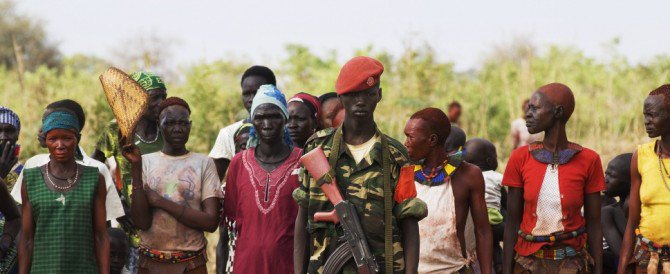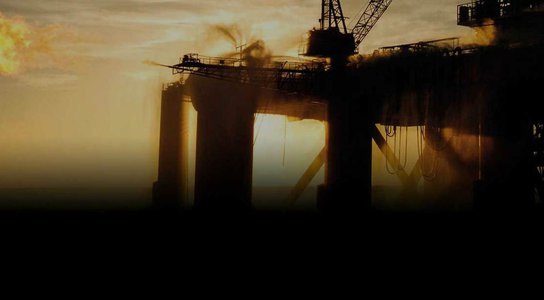This post was first published in The East African.
South Sudan, the heart of the East African oil boom, sits on a knife edge. The peace long promised to South Sudanese citizens threatens to disappear completely unless the negotiations in Addis Ababa bear the fruit of complete reform rather than sticking plaster fixes. Reforming how the country’s oil is dealt with must be high up the agenda at the peace talks. South Sudan’s huge oil wealth has so far failed to translate into prosperity for the majority. Instead, it has been an axis of instability in the country, culminating in the vicious battle for control of the oil fields in recent weeks.
Forging a lasting peace will be impossible unless leaders demonstrate to South Sudanese that this natural wealth will be managed openly, fairly and responsibly. Allegations of corruption must be curtailed by making the oil sector fully transparent. Giving civil society a voice at the peace talks must mark the first steps towards building a accountable democracy. And South Sudanese citizens living around the oilfields must see that their security is valued as much as the safety of the oilfields themselves.

South Sudan’s oil laws give citizens the right to know who gets the oil deal and what payments change hands. The laws have the potential to open the industry up to scrutiny, which is vital for South Sudan: it is the best way to combat corruption, build stability, and encourage responsible investment. But one law hasn’t been signed off, while the other has yet to be implemented, so the government’s commitment to transparency remains largely unproven. For South Sudanese citizens, the absence of concrete information about the country’s oil earnings has raised questions about how the millions of dollars received since independence are being used right now.
These doubts are not helping to hold South Sudan’s fragile social fabric together. Perceptions of pervasive government corruption are invariably understood through the same filters that have triggered violence in this conflict: political affiliation and ethnicity. The conflict has also exposed the precariousness of livelihoods in the world’s youngest country, adding weight to suspicions that the elite have prospered at the expense of ordinary South Sudanese.
The peace process offers an opportunity for South Sudanese leaders to begin mending the holes, but to do so, they must prove that they are serious about turning strong words into real action. The Government of South Sudan must make tangible commitments to implementing oil laws immediately, while aid donors should use their influence to ensure legislation is not endlessly delayed. Both must ensure that discussions around oil management include governors from the oil producing states, committing them to anti-corruption measures too.
For peace to last, civil society must be able to actively participate in an open and inclusive government. Good oil laws are only one piece of the puzzle here. There is little meaning in providing citizens with information if they can’t use it to hold their leaders to account. Reports of harassment and intimidation of campaigners and journalists by security forces, constant since independence, have spiked during the recent conflict and threaten to choke the fledgling democracy. There must be a line in the sand drawn: durable peace for South Sudan demands durable freedoms for South Sudanese.
The peace process has been billed as an all-inclusive affair. Those in charge could lay the foundations of a true democracy, in opening the door to diverse voices in the conversation about South Sudan’s future. However, citizen participation must be credible, and negotiators must avoid the pitfalls of tokenism. Groups must be representative of the whole of the South Sudanese population and feel free to lend their opinions without negative repercussions. In short, the negotiations should mark a departure from the modus operandi of South Sudanese politics until now.
Finally, the South Sudanese government must prioritise the security of civilians alongside that of the oilfields. Fighting has been fierce in the oil states of Unity and Upper Nile, and abuses by government forces widespread, leaving thousands of survivors destitute and vulnerable. Heavy-handed control by an influx of military forces poses a huge risk to local populations, including further human rights violations, displacement and, ultimately, more instability.
Commitments to better military discipline, starting in the heavily militarised oil states, must be made at the talks. At the very least, the government should thoroughly vet any additional troops to be sent to Unity and Upper Nile. Citizens must trust that SPLA in their communities are not the perpetrators of abuses reported elsewhere. Oil companies must also step up to the plate, ensuring that that the security of their operations does not come at the expense of the security of local communities.
South Sudan’s leaders have the opportunity in Addis to deliver the peace and prosperity they have promised the country’s citizens. This chance must be seized.
Emma Vickers is a Campaigner on South Sudan at Global Witness. Follow her on Twitter at @EmmavickersGW
